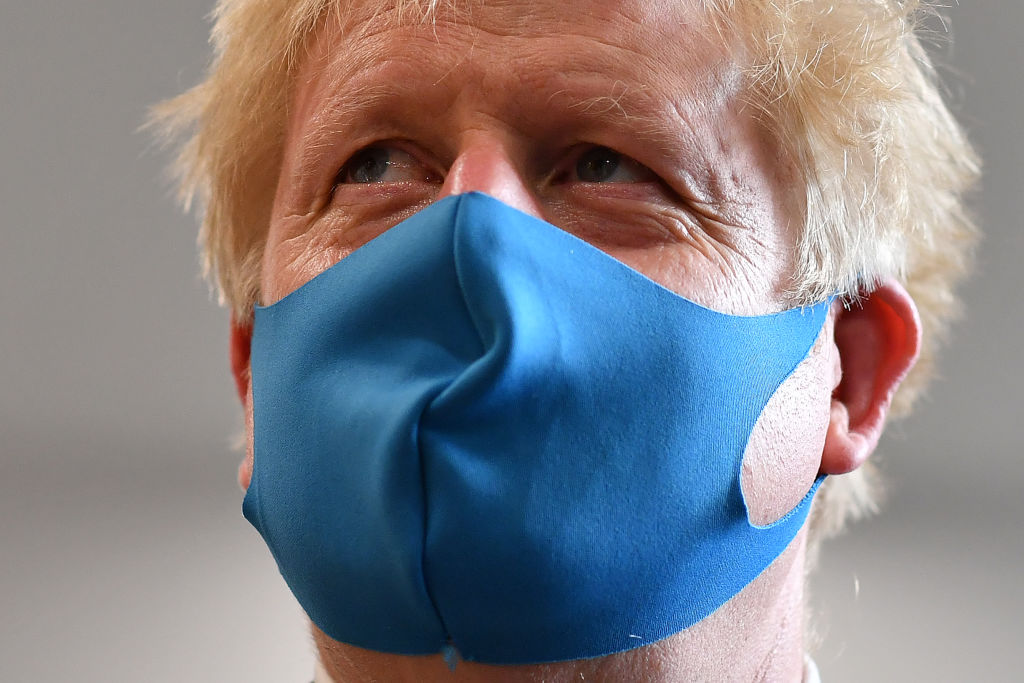When the facts change, I change my mind. What do you do sir? That defence of the political u-turn was purportedly uttered by the great economist John Maynard Keynes and is recognised as the classic intellectually respectable case for abandoning a stance in favour of an opposite one. It is certainly the best defence available to Boris Johnson over his apparent volte face on mask-wearing with the new announcement that masks will be compulsory in shops from next week. World Health Organisation advice has warmed up on the protective value of masks over recent weeks and the experience of several other countries appears to bear out their usefulness.
On the other hand, when the stance a statesman first takes immediately appears to fail the test of common sense and then he later abandons it, an ebbing away of authority is likely to ensue. And when the new stance also appears to contradict other recently announced policies, voters might even conclude that a certain amount of losing of the plot has taken place.
These shortcomings would seem now to apply not only in respect of mask-wearing but also to Johnson’s entire anti-coronavirus strategy. One does not sense that a perfect handbrake turn learned at the advanced school of political motorists is being executed so much as that a learner driver is zig-zagging, bunny-hopping and engine-stalling his way towards changing the direction of his vehicle.
If mask-wearing is necessary in enclosed spaces, then how come pubs and restaurants have opened up again? If the risk of infection in the presence of those from other households is significant then why is the PM urging people to stop working from home and go back to the office?
Those of us who wish the Prime Minister well find the hesitancy and muddle-headedness on Covid immensely frustrating
And above all, wasn’t it always perfectly obvious to anyone with an ounce of common sense that wearing masks was likely to lower the spread of an airborne virus? Yet it was advised against when the R value was much higher than it is now and the numbers of infected people were very high. At this point I must direct you to a video that Downing Street put out on 11 March, in that other country known as the past when the Prime Minister had yet to suffer his personal brush with death. In the video, which is such a horror show of implemented wrong calls and non-implemented right ones that it can now only be watched through fingers over the eyes, Boris interviews the deputy chief medical officer Jenny Harries.
Dr Harries hints at a strategy of shielding older people and those in poor health while allowing others to get on with their normal lives – something that didn’t happen. She says that banning large outdoor gatherings such as sports events isn’t necessary because it won’t have a big effect on the prevalence of the virus but will disrupt people’s lives. A few days later, the Premier League was suspended.
And then there is what me must now term the masked balls-up. Boris asks: ‘Tell us about the value of wearing face masks. Is there any point to that?’
Dr Harries replies: ‘It’s usually quite a bad idea. People tend to leave them on. They contaminate the face mask and then wipe it over something. So it is really not a good idea and does not help.’
Now that may well have been the UK scientific consensus at the time, but was it ever plausible? Or was it based on very sketchy data derived from the study of different diseases and promoted by a health establishment spooked by the idea of the British public competing with the NHS for PPE that was already in short supply?
I was just one of many non-expert observers who was urging by April that masks be made mandatory on public transport. Yet the Government did not require mask-wearing on buses, rail or tube for a further two months.
And now, when the number of new infections has fallen off a cliff, it is going to require them to be worn in shops of all sizes, empty or full, making retail therapy feel more like retail surgery and undoubtedly choking off many discretionary shopping trips into our deserted city centres in the process.
If ministers believe the measure will encourage the timid back to the shops, might I suggest it is far more likely to give them an even more exaggerated sense of peril and heightening an all-round sense of plague doom rather than that of a striding back towards normality?
Those of us who wish the Prime Minister well and are even cheerleaders for the Government’s sure-footed and confident handling of post-Brexit negotiations (led by top-of-their-game performers Michael Gove and David Frost), find the hesitancy and muddle-headedness on Covid immensely frustrating.
And those who say that Boris Johnson getting coronavirus was disastrous for the country not only because the Government could not take decisions in his absence but also because the experience transformed him from a blithe spirit into a broken one undeniably find their hypothesis gaining ground.







Comments